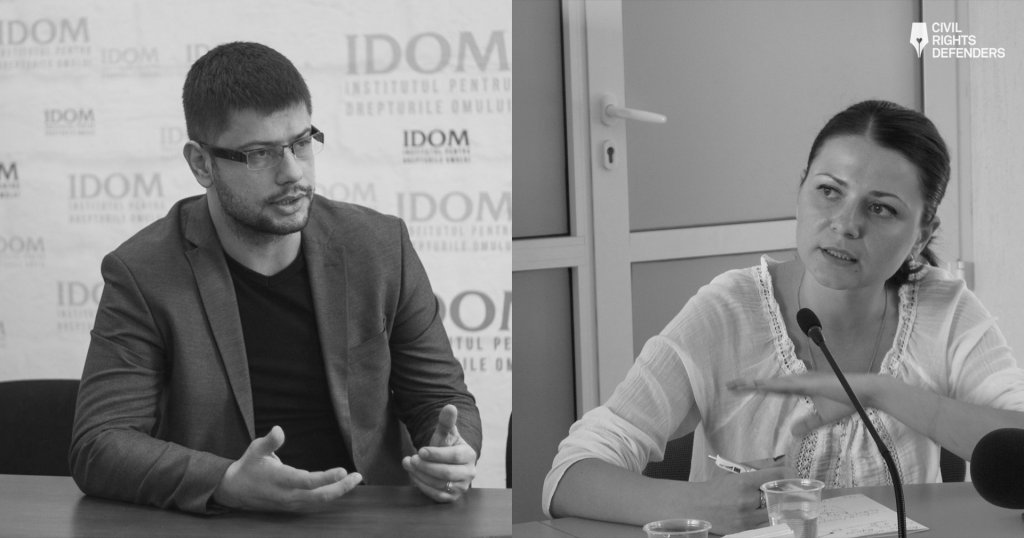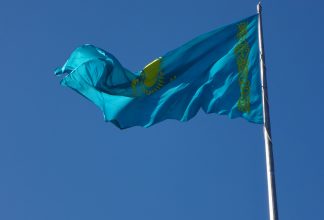Moldova: Civil Society Responds to New Challenges Amid Coronavirus Pandemic

When a state of emergency was declared in Moldova on 17 March over the coronavirus pandemic, civil society organisations quickly adapted to the new reality. Civil Rights Defenders spoke to two organisations about the unique challenges posed by the pandemic and how they are monitoring human rights violations and providing support to vulnerable people.
When the coronavirus pandemic hit Moldova, schools and shops closed and many regions were put under quarantine with strict restrictions on movement. By the end of May, Moldova had over 7,300 registered cases, putting significant strain on an already weak health care system.
Monitoring human rights violations connected to the pandemic
Lilia Potîng is a human rights lawyer at the Promo-LEX Association, a human rights and democracy organisation established in 2002. A few years ago, the organisation launched monitor.md, an online platform with which citizens can report human rights violations. As the state imposed restrictions to prevent the spread of COVID-19, Promo-LEX began monitoring human rights violations connected to the pandemic.
“Only two weeks after launching the new platform we had 80 registered cases. Many are related to the situation for health care workers – a fourth of those infected are medical staff. They often feel that they are not protected enough and that they can’t speak up about the situation in the hospitals”, Potîng said.
By collecting and disseminating this information, Promo-LEX keeps citizens informed about the situation. When the pandemic is over, the organisation will analyse the data and provide the authorities with recommendations for the protection of human rights in future emergency situations. The platform is also a resource for immediate help. People can use it to find phone numbers for support organisations or request legal assistance.
Increasing cases of domestic violence
One issue that particularly worries Lilia is the increased risk of domestic violence resulting from the state requiring people stay at home. At the same time, reporting abuses and accessing support services has become more difficult for people who are locked in with their abuser. Many shelters have had to close to prevent the spread of the virus. As a temporary solution, a national coalition against domestic violence, of which Promo-LEX is a part, has set up emergency apartments to support victims who urgently need to leave their home.
People in closed institutions particularly vulnerable
Another organisation that has needed to adapt to the new circumstances is the Moldovan Institute for Human Rights (IDOM). On 3 April, IDOM launched a crisis centre for human rights during the pandemic. The centre offers legal assistance and a hotline for reporting human rights violations during the pandemic. One of the most common complaints concerns the lack of appropriate health care and many claim they do not receive the help that they need. Especially worrying is the situation for people in closed institutions, such as psychiatric hospitals and temporary placement centers for persons with disabilities, according to Dumitru Russu, monitoring and reporting coordinator at IDOM.
“The state has not been prepared for the situation, especially when it comes to protecting the right to health for vulnerable groups”, Russu explained.
The crisis centre does not currently have funding for its operations, but the team at IDOM is doing everything they can to keep it open, viewing it as a necessity in these difficult times.
Both Lilia and Dumitru agree that some limitations and restrictions might be reasonable and justifiable during a public health emergency, but that it is crucial that governments do not overreact and overstep their mandate. In this period of uncertainty, civil society organisations in Moldova have stepped in and stepped up to monitor the measures put in place by the state, and to help when the state fails to do so.
